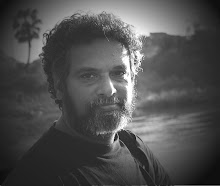World Theatre Day Message 2015 –from the Polish director Krzysztof Warlikowski.
The true masters of the theater are most easily found far from the stage. And they generally have no interest in theater as a machine for replicating conventions and reproducing clichés. They search out the pulsing source, the living currents that tend to bypass performance halls and the throngs of people bent on copying some world or another. We copy instead of create worlds that are focused or even reliant on debate with an audience, on emotions that swell below the surface. And actually there is nothing that can reveal hidden passions better than the theater.
Most often I turn to prose for guidance. Day in and day out I find myself thinking about writers who nearly one hundred years ago described prophetically but also restrainedly the decline of the European gods, the twilight that plunged our civilization into a darkness that has yet to be illumined. I am thinking of Franz Kafka, Thomas Mann and Marcel Proust. Today I would also count John Maxwell Coetzee among that group of prophets.

“The legend seeks to explain what cannot be explained. Because it is grounded in truth, it must end in the inexplicable”—this is how Kafka described the transformation of the Prometheus legend. aI feel strongly that the same words should describe the theater. And it is that kind of theater, one which grounded in truth and which finds its end in the inexplicable that I wish for all its workers, those on the stage and those in the audience, and I wish that with all my heart.
KRZYSZTOF WARLIKOWSKI, is a Polish theatre director, creator and artistic director of Nowy Teatr (New Theatre) in Warsaw.

Warlikowski studied history, Romance languages and philosophy at the Jagiellonian University in Krakow. In 1983 he left Poland and spent most of the ensuing years in Paris, where he attended a seminar on Classical theatre at the École Pratique des Hautes Études and studied philosophy and French language and literature at the Sorbonne. In 1989 he returned to Poland to study at the Theatre Academy in Krakow.
He has a versatile body of work - from Shakespeare's The Merchant of Venice, The Winter's Tale, and Hamlet; to Sophocles' Electra and Euripides' The Phoenicians and The Bacchae; to Verdi's Don Carlos. He is best known for his staging of modern plays, including Franz Kafka's The Trial and Bernard-Marie Koltès' Roberto Zucco and Quai Ouest. His 2002 production of Sarah Kane's Cleansed at the Festival d'Avignon and the Festival de Théâtre des Amériques in Montreal received wide acclaim. Among his most famous productions are also The Dybbuk after S. An-ski and Hanna Krall which was presented at BAM's 2004 Next Wave Festival, and Hanoch Levin's Krum which was presented at BAM in 2007. Both of these productions premiered at TR Warszawa, the theater he collaborated with from 1999 until 2007.In 2007 he returned to the Festival d'Avignon directing Tony Kushner's Angels in America with TR Warszawa.

He has for years been working with the same group of artists, including set designer Malgorzata Szczesniak and composer Pawel Mykietyn.
Krzysztof Warlikowski is a winner of numerous awards, including "Polityka" Weekly's Passport for 2002 "for not only his achievements of the last season, but above all for restoring belief in the artistic and ethical mission of theatre", Golden Yorick award of the Theatrum Gedanense Foundation for the best Shakespeare production (2003), Konrad Laurels and the Award of the French Theatre Critics' Union, both in 2003 for TR Warszawa's production of Sarah Kane's Cleansed, judged to be the best foreign language production to be presented in France during the 2002/03 season. He was honored by the Theatre Critics' Section of the Polish branch of the International Theatre Institute for popularizing Polish theatrical culture abroad. In 2004 he received the French title of Chevalier de l'Ordre des Arts et de Lettres and the Diploma of the Minister of Foreign Affairs of Poland for his distinguished service to Poland abroad. In 2006 he received the prestigious Meyerhold Award in Moscow, and in April 2008, the X Europe Prize "New Theatrical Realities" in Thessaloniki, Greece. In May 2008 New York's Village Voice gave Warlikowski its Obie Award for the direction of Krum by Hanoch Levin, presented by TR Warszawa at BAM's 25th Next Wave Festival.
Labels: krzsysztof Waliikowsky, world theatre day



0 Comments:
Post a Comment
Subscribe to Post Comments [Atom]
<< Home